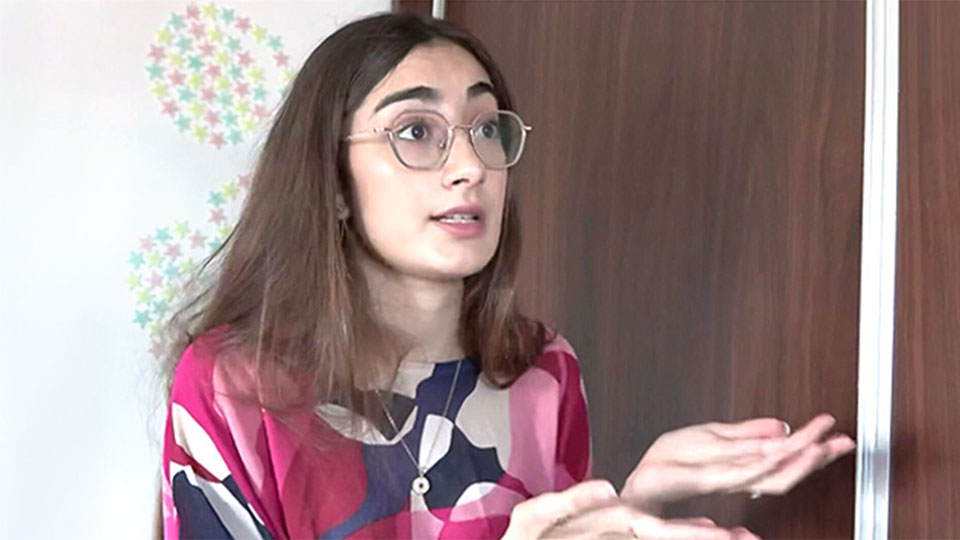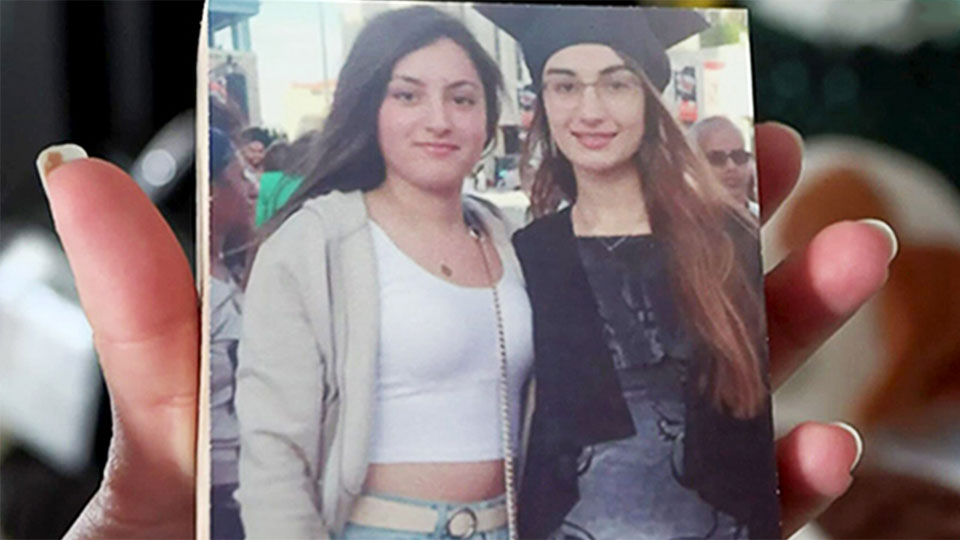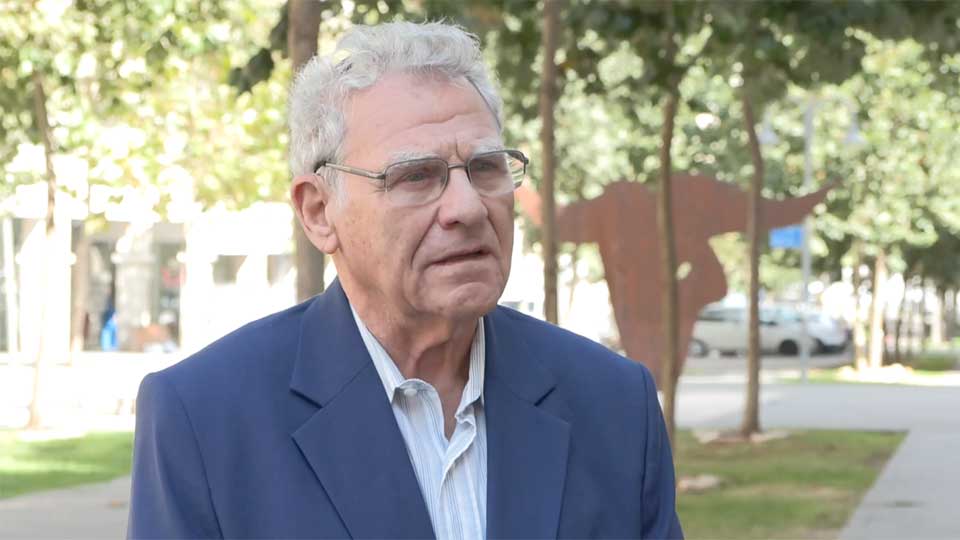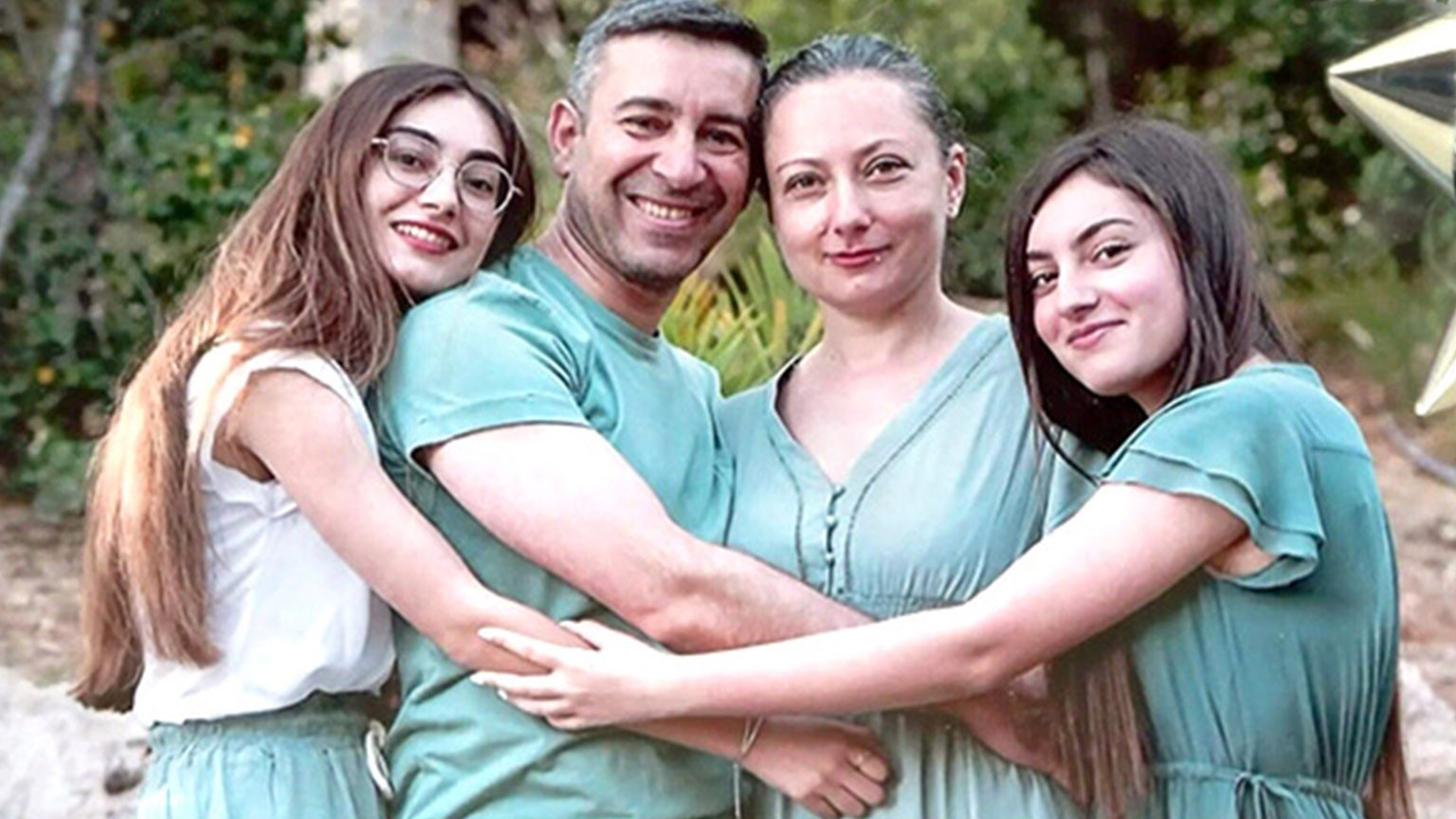
Sasha Ariev is one of those waiting for a family member to be released. She lives in Jerusalem with her parents. After Hamas carried out its surprise attack on October 7, Sasha found her sister among the images from the assault that were posted on social media. Karina was lying limp in a car seat. Sasha didn't want to believe it, but there was no denying that it was her sister.

Straight into national service after high school
Israel has a conscription system for both men and women, and after graduating from high school, Karina joined the military in October last year at age 18. Sasha, who is five years older than her, had been sharing a single room with her younger sister since childhood. Sasha says Karina has a gentle personality and cherished the time spent with her family. Sasha describes how Karina felt about joining the military.

"It was really hard for her because Karina likes to be at home," Sasha recalls. "Although she is 19, she has always been responsible for her age."
In January, three months after entering the service, Karina was sent to a base along the border with the Gaza Strip. Sasha recalls that Karina was afraid to be there, but says "She knew her duty. Her duty is very important for our country, for our state of Israel."
Family pushed to exhaustion
Since Karina went missing, Sasha and her parents have been glued to the TV, hoping for any new information about the hostages.
Her father, Albert, constantly scans Arabic social media to see if there are any clues as to Karina's whereabouts. During the family's interview with NHK, her mother, Ira, did not speak at all, unable to stop crying.
Both parents wake up many times during the night, shaking uncontrollably.
A mound of food sits uneaten on the table. Relatives and others worried about the family have sent them dishes, but Albert says he has no appetite.

Regarding the possible Israeli ground offensive into the Gaza Strip, Albert says, "I don't know what to say. Is it good or not? I don't know. I just want my child back. That's all I want."
Sasha expressed dissatisfaction with the Israeli government's response.
"We trust our military and our government to take care of our children that we're sending them. But we now feel betrayed. The base wasn't ready for such an attack. It was not protected enough. They did not have weapons there," she says. "Maybe they should stop and negotiate first to get the hostages back, and then do the operation. But they're only talking about the operation and military moves."

Families of hostages press for their release
The families of other hostages have also called on the Israeli government to negotiate their release.
It's not only Israeli families seeking this outcome, with the relatives of the hostages from other countries also pressing their governments to secure the safety of their family members.
Hamas said on October 20 in a social media post that it released two American citizens — a mother and her daughter — "for humanitarian reasons."
Israel later announced that it confirmed the safety of the two.
But according to Israel's military, around 200 people, including foreign nationals, are believed to still be held in Gaza.
Expert: Hostages are only a secondary consideration
The president of the Jerusalem Institute for Strategy and Security, Efraim Inbar, says the hostages are unlikely to make Israel hesitate to launch a ground offensive.
"In terms of military operations, the hostages are only a secondary consideration. The Israeli military will go in primarily for Hamas rather than to look for the hostages. Our main goal is to annihilate the military capabilities of Hamas.
"In the Middle East, if you are weak or seen as being weak, you invite aggression. This is one reason why Hamas attacked us at this moment, because of the domestic debates within Israel. They evaluated that Israel is weak and this is why they attacked. So we have to restore deterrence, which is the key for Israel's survival. In the Middle East, you cannot survive without being strong."

Karina's bed is decorated with birthday gifts and messages from her close friends, which they left before she was taken. Sasha says, "They're waiting for her to come home. We hope she will come back to us."


